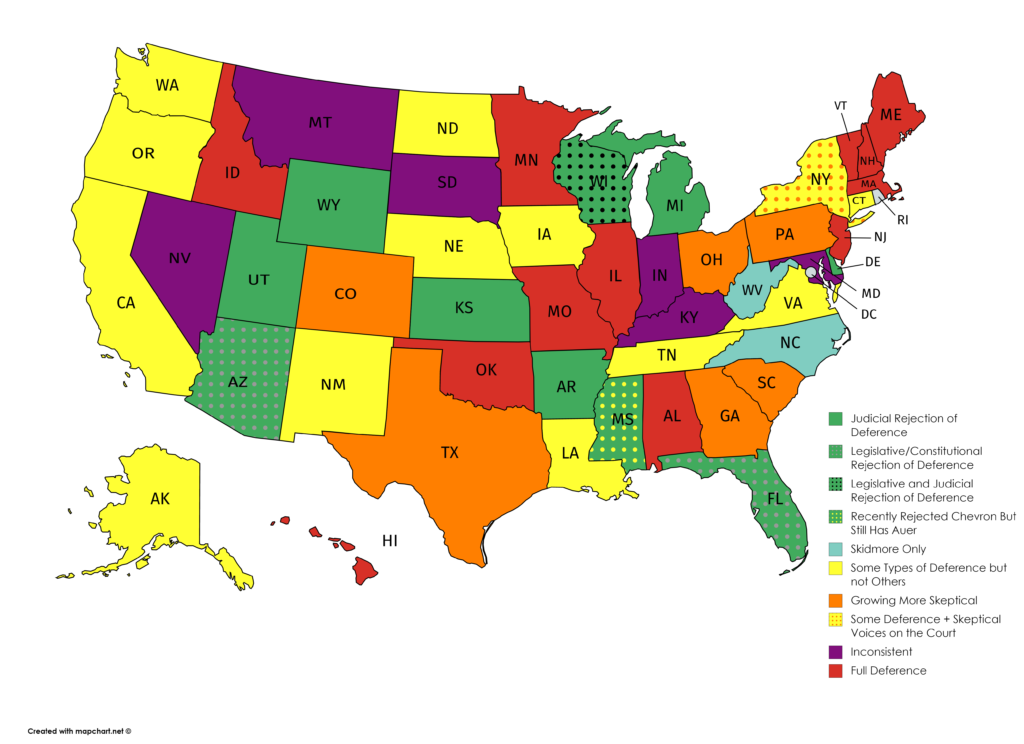The End of Deference: An Update from Arkansas, by Daniel M. Ortner
I recently posted about the states that had rejected deference in the past several years and noted that several more states were likely to reconsider deference in 2020. One state that I did not expect to see make the change was Arkansas whose state Supreme Court had as recently as 2014 had employed a highly deferential standard that said that an agency’s interpretation would not be disturbed unless it was “clearly wrong.”
But earlier this week, the Arkansas Supreme Court unexpectedly* decided to abandon deference. The Court “acknowledge[d] confusion in prior cases regarding the standard of review for agency interpretations of a statute” and set out to clarify its doctrine. It explained that it was “concern[ed]” with “the risk of giving core judicial powers to executive agencies in violation of the constitutional separation of powers.” When the Court granted deference it “effectively transfers the job of interpreting the law from the judiciary to the executive.” Accordingly, the Court emphasized that agency interpretations of statutes would be conducted de novo and that “the agency’s interpretation will be one of our many tools used to provide guidance.”
Although the decision does not touch directly on Auer-like deference, it seems likely that the reasoning of the decision would apply to that type of deference as well.
It is very exciting to continue to see more states follow suit and recognize that deference can be a derogation of the judicial duty to say what the law is.
I have updated Arkansas in my map which shows all of the states and their acceptance or rejection of deference:

Daniel M. Ortner is an attorney at the Pacific Legal Foundation, a public interest law firm that litigates for individual liberty and the separation of powers. He previously clerked for Justice Thomas R. Lee of the Utah Supreme Court and Judge Kent A. Jordan of the Third Circuit Court of Appeals.
* There is actually another case pending before the Arkansas Supreme Court in which the New Civil Liberties Alliance filed an amicus brief urging the Court to abandon deference, but the briefing in that case is still ongoing and so a decision abandoning deference was not expected for a while.



